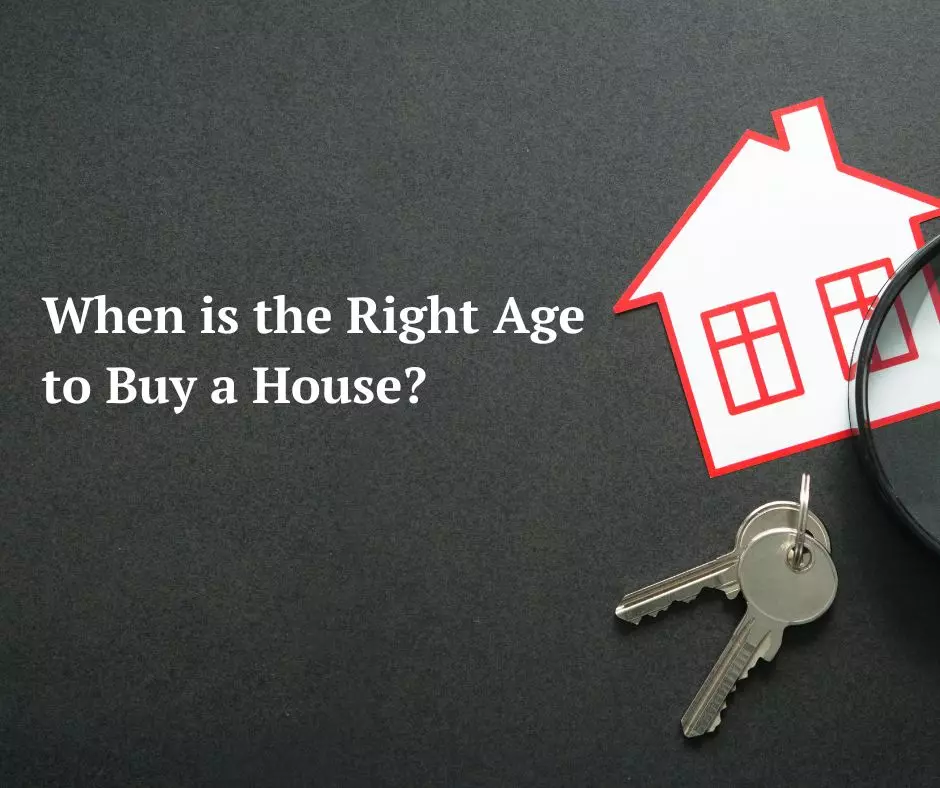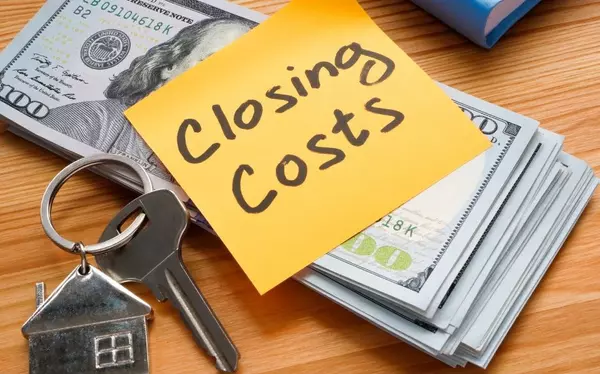When is the Right Age to Buy a House?

When is the Right Age to Buy a House?
Introduction
Purchasing a home is among the most important financial choices you will ever make. It's a milestone often associated with adulthood and financial stability. However, determining the right age to make this purchase can be complex, as it depends on a variety of factors, including financial readiness, personal circumstances, and market conditions.
Understanding the right age for purchasing a home is crucial because it can impact your financial health and lifestyle for years to come. Jumping into homeownership too early might strain your finances, while waiting too long could mean missing out on building equity and long-term investment opportunities.
The purpose of this blog is to guide you through the considerations that influence the optimal time to buy a house. We'll explore factors such as financial stability, career trajectory, and personal goals to help you make an informed decision. By the end, you'll have a clearer understanding of when it might be the right time for you to take the leap into homeownership, ensuring that it's a beneficial and sustainable choice for your future.
Key Takeaways: When is the Right Age to Buy a House?
- Individual Readiness Over Age:
- The right age to buy a house is less about a specific number and more about personal and financial readiness.
- Financial Stability:
- Ensure a stable income, strong credit score, low debt-to-income ratio, and sufficient savings for a down payment and emergency fund.
- Career Stability:
- Job security, career growth, and relocation possibilities play a significant role in deciding when to buy a house.
- Family and Relationships:
- Consider family planning, relationship stability, and the type of home and location that suits your family needs.
- Long-Term Goals:
- Evaluate how homeownership fits into your broader financial plans, including retirement savings and other investments.
- Market Conditions:
- Monitor real estate trends, interest rates, and broader economic factors to make an informed decision on the best time to buy.
- Age-Related Considerations:
- 20s: Pros include building equity early; cons include limited financial resources and career mobility.
- 30s: Benefits include greater career stability and higher earning potential, allowing for a larger down payment.
- 40s and Beyond: Increased financial stability and clearer retirement plans, but important to align homeownership with retirement strategy.
Financial Readiness
Assessing Financial Stability
Before purchasing a house, it's essential to assess your financial stability. A stable income is crucial, as it ensures you can consistently meet mortgage payments and other homeownership costs. Additionally, having emergency savings is vital; it provides a safety net for unexpected expenses, preventing financial strain.
Credit Score and History
A good credit score significantly impacts your ability to secure a mortgage with favorable terms. Lenders use your credit history to gauge your reliability in repaying loans. To improve your credit score, pay bills on time, reduce outstanding debts, and avoid opening multiple new credit accounts in a short period.
Debt-to-Income Ratio
Understanding your debt-to-income (DTI) ratio is another critical factor. This ratio evaluates the difference between your monthly gross revenue and debt payments. A lower DTI ratio indicates better financial health. Most lenders prefer a DTI ratio of 43% or lower for homebuyers, as it suggests you can manage additional debt responsibly.
Down Payment and Closing Costs
Saving for a down payment is a significant step towards homeownership. Typically, a down payment of 20% of the home's purchase price is ideal, as it can help you avoid private mortgage insurance (PMI) and secure better loan terms. Additionally, it's essential to understand the closing costs, which can include fees for appraisals, inspections, and loan origination. Preparing for these costs ensures a smoother, less stressful homebuying experience.
Personal and Lifestyle Considerations
Career Stability
When considering buying a house, career stability plays a crucial role. Having job security and clear future prospects ensures you can meet mortgage obligations over the long term. Additionally, consider your career growth and relocation possibilities. If your job might require you to move frequently, homeownership might be less practical compared to renting.
Family and Relationships
Your family and relationships also significantly impact your homebuying decision. Family planning and relationship stability should be factored in, as these elements influence the type of home and location that best suits your needs. For instance, if you plan to start a family, you might prioritize homes in areas with good schools and family-friendly amenities. Additionally, the stability of your relationship can affect financial readiness and long-term planning.
Long-Term Plans
Evaluating your long-term goals and aspirations is essential before purchasing a home. Consider how homeownership fits into your broader financial plans, such as retirement savings and other investments. Homeownership can be a strategic move for building equity and wealth, but it's crucial to ensure it aligns with your overall financial strategy. Assessing these personal and lifestyle factors can help you determine the right time and circumstances to buy a house, making it a sustainable and fulfilling decision for your future.
Market Conditions
Real Estate Market Trends
Understanding current market conditions is vital when deciding to buy a house. Real estate market trends can significantly impact home prices and availability. Analyzing trends involves looking at factors such as housing supply and demand, average home prices, and the time properties stay on the market. Keeping an eye on these trends can help you make informed decisions, ensuring you buy at a time when prices are favorable.
Interest Rates
Interest rates play a crucial role in mortgage affordability. Lower interest rates can reduce your monthly mortgage payments, making homeownership more affordable. Conversely, higher rates can increase the cost of borrowing. Monitoring interest rate trends and predictions can help you time your purchase to take advantage of lower rates. Financial experts often provide forecasts that can guide you on whether to lock in a rate or wait for potential decreases.
Economic Factors
Broader economic indicators also influence the housing market. Factors such as inflation, employment rates, and overall economic growth can impact home prices and mortgage rates. A stable economy typically provides a more favorable environment for buying a home, as job security and income levels are likely to be higher. Understanding how economic stability affects the housing market can help you determine the right time to buy. By considering these market conditions, you can make a more strategic and informed homebuying decision, ensuring it aligns with your financial goals.
Age-Related Considerations
Buying in Your 20s
Buying a house in your 20s comes with both pros and cons. On the positive side, purchasing young allows more time to build equity and potentially benefit from long-term property appreciation. It can also provide a sense of stability and an early start on financial planning. However, the cons include limited financial resources and potential career mobility, which might require relocation. Financial readiness is crucial; ensure you have a stable income, a good credit score, and an emergency fund before committing to homeownership in your 20s.
Buying in Your 30s
Waiting until your 30s to buy a house has several advantages. By this age, many individuals have achieved greater career stability and higher earning potential, making it easier to afford a home. Additionally, people in their 30s often have a clearer understanding of their long-term goals and can balance career growth with homeownership. This decade typically provides a better financial foundation, allowing for a larger down payment and potentially better mortgage terms.
Buying in Your 40s and Beyond
Purchasing a home in your 40s and beyond has its own set of benefits and challenges. The benefits include increased financial stability and a clearer vision of retirement plans. Many in this age group have accumulated significant savings, making it easier to manage down payments and mortgage costs. However, challenges include the need to align homeownership with retirement planning. It's essential to consider how buying a house fits into your overall retirement strategy, ensuring that mortgage payments won't strain your retirement savings. By evaluating these age-related considerations, you can make a well-informed decision about the best time to buy a house.
Expert Opinions and Advice
Financial Advisors
Financial advisors offer valuable insights on the right age to buy a house, emphasizing that it’s less about age and more about financial readiness. They suggest focusing on factors such as having a stable income, a strong credit score, and sufficient savings for a down payment and emergency fund. Financial planners often recommend waiting until you have a clear budget and financial plan, ensuring that homeownership doesn’t compromise other financial goals like retirement savings.
Real Estate Experts
Real estate experts provide tips on market timing, crucial for making an informed homebuying decision. They advise potential buyers to monitor local market trends, such as inventory levels and price fluctuations, to identify the best time to purchase. Real estate professionals also highlight the importance of understanding interest rate trends, as lower rates can significantly reduce mortgage costs. They recommend working with a knowledgeable real estate agent who can provide guidance on market conditions and negotiate the best deals.
Personal Stories
Testimonials from homeowners can offer practical advice and lessons learned from their own experiences. Many homeowners emphasize the importance of not rushing into buying a house simply because of age. Instead, they suggest ensuring financial and personal readiness. Personal stories often highlight the benefits of waiting until you’re truly prepared, such as having a solid emergency fund and understanding the long-term responsibilities of homeownership. By heeding the advice of financial advisors, real estate experts, and experienced homeowners, you can make a more informed and confident decision about when to buy a house.
Conclusion
In determining the right age to buy a house, it's crucial to focus on individual readiness rather than a specific age. Throughout this blog, we've explored various factors that influence this decision, including financial stability, personal and lifestyle considerations, market conditions, and age-related factors.
Recapping the key points: financial readiness is essential, encompassing stable income, a good credit score, manageable debt levels, and sufficient savings for a down payment and emergency fund. Personal and lifestyle considerations, such as career stability, family planning, and long-term goals, play a significant role in determining the right time to buy. Additionally, understanding real estate market trends, interest rates, and broader economic factors can help you make an informed decision. Age-related considerations highlight that while buying in your 20s, 30s, or 40s each has its pros and cons, the primary focus should be on your unique situation.
Ultimately, it's important to assess your personal and financial circumstances carefully before making a decision. Homeownership is a significant commitment that can bring stability and long-term financial benefits, but only when approached with careful planning and readiness. By prioritizing individual readiness and making informed decisions based on your specific situation, you can ensure that purchasing a home becomes a rewarding and sustainable milestone in your life.
Categories
Recent Posts










